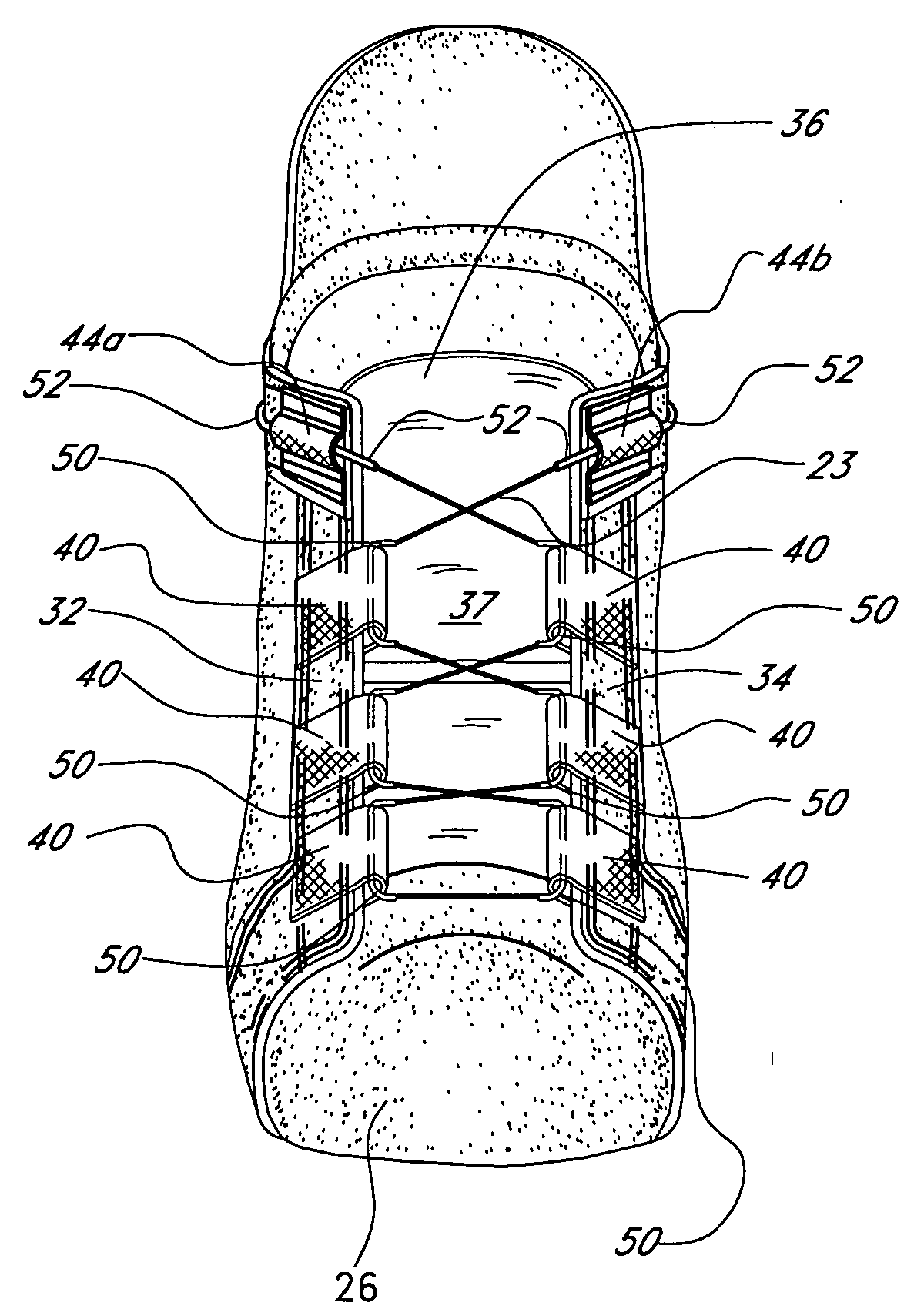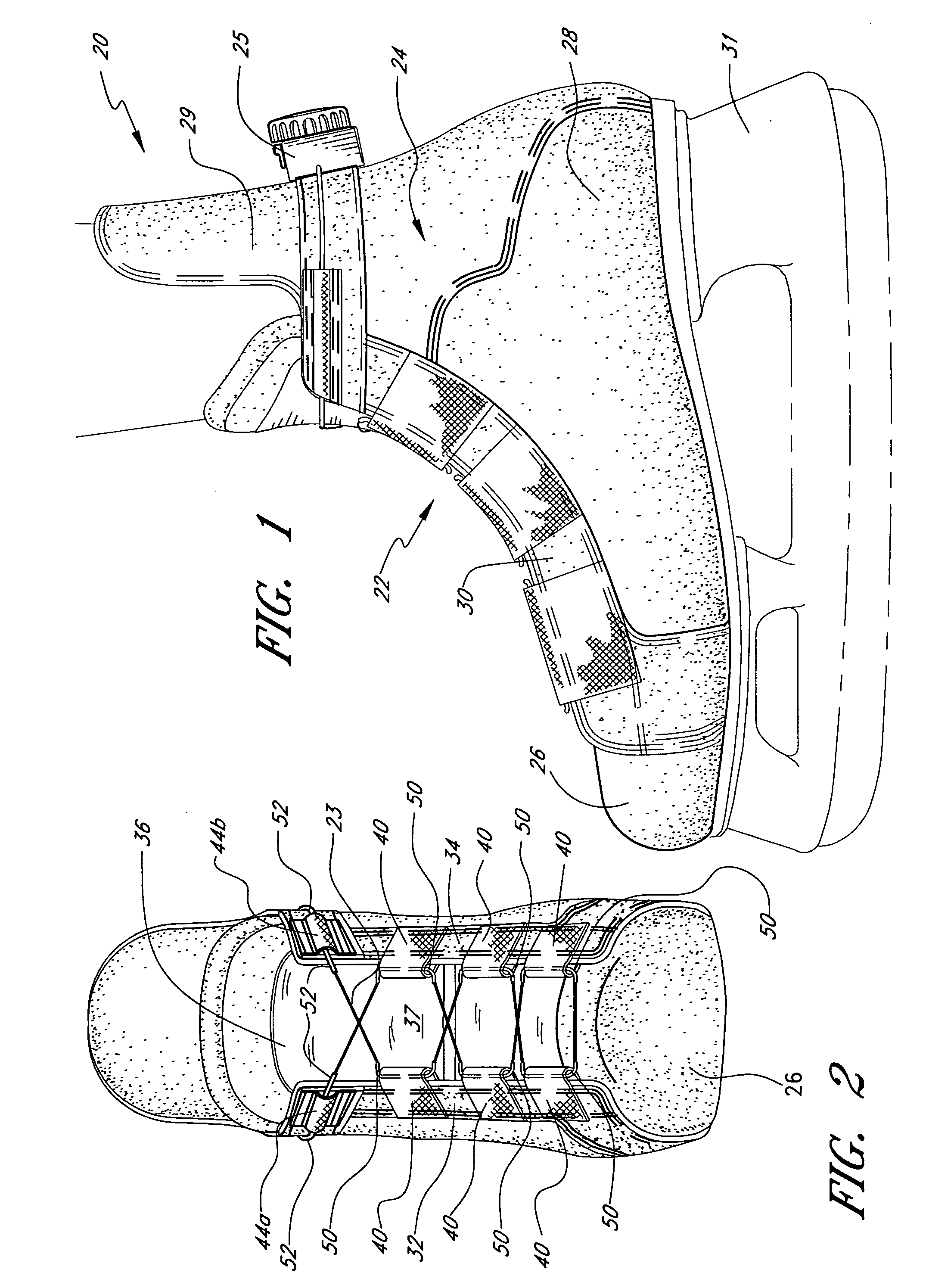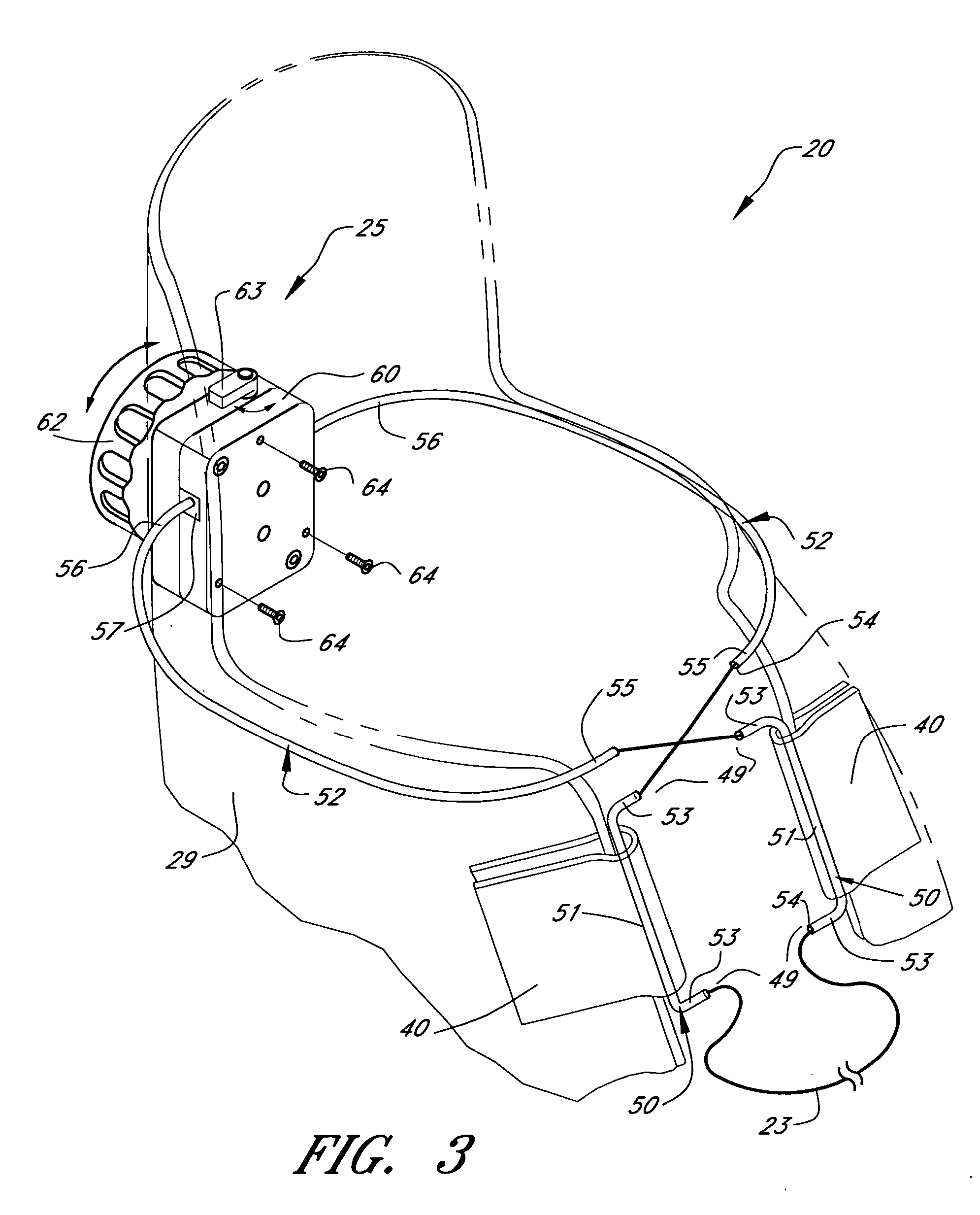Reel based closure system
a technology of lace and closure, applied in the direction of fastenings, press-button fasteners, footwear, etc., can solve the problems of affecting the performance of some sports, slack and other parts of the lace are in tension, and the tightening force is not evenly distributed, so as to achieve low elasticity and high tensile strength
- Summary
- Abstract
- Description
- Claims
- Application Information
AI Technical Summary
Benefits of technology
Problems solved by technology
Method used
Image
Examples
Embodiment Construction
[0077] Referring to FIG. 1, there is disclosed one embodiment of a sport boot 20 prepared in accordance with the present invention. The sport boot 20 generally comprises an ice skating or other action sport boot which is tightened around a wearer's foot using a lacing system 22. The lacing system 22 includes a lace 23 (FIG. 2) that is threaded through the boot 20 and attached at opposite ends to a tightening mechanism 25, as described in detail below. As used herein, the terms lace and cable have the same meaning unless specified otherwise. The lace 23 is a low friction lace that slides easily through the boot 20 and automatically equilibrates tightening of the boot 20 over the length of the lacing zone, which generally extends along the ankle and foot. Although the present invention will be described with reference to an ice skating boot, it is to be understood that the principles discussed herein are readily applicable to any of a wide variety of footwear, and are particularly app...
PUM
 Login to View More
Login to View More Abstract
Description
Claims
Application Information
 Login to View More
Login to View More - R&D
- Intellectual Property
- Life Sciences
- Materials
- Tech Scout
- Unparalleled Data Quality
- Higher Quality Content
- 60% Fewer Hallucinations
Browse by: Latest US Patents, China's latest patents, Technical Efficacy Thesaurus, Application Domain, Technology Topic, Popular Technical Reports.
© 2025 PatSnap. All rights reserved.Legal|Privacy policy|Modern Slavery Act Transparency Statement|Sitemap|About US| Contact US: help@patsnap.com



